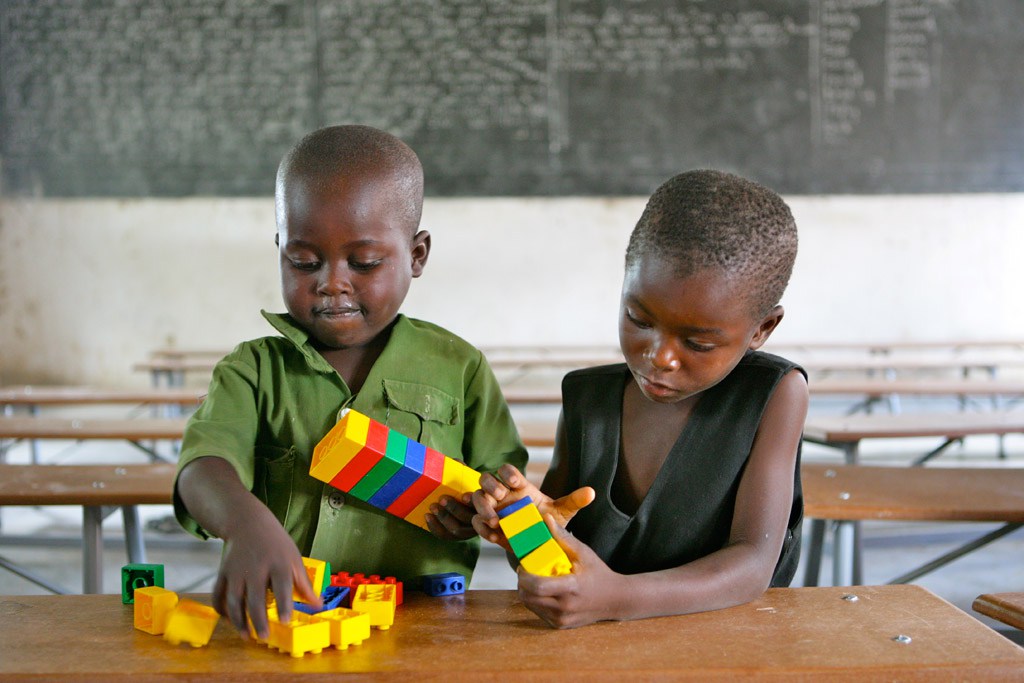Water scarcity, poor water quality and inadequate sanitation negatively impact food security, livelihood choices and educational opportunities for poor families across the world. Drought afflicts some of the world’s poorest countries, worsening hunger and malnutrition.
By 2050, at least one in four people is likely to live in a country affected by chronic or recurring shortages of fresh water.
- 2.6 billion people have gained access to improved drinking water sources since 1990, but 663 million people are still without
- At least 1.8 billion people globally use a source of drinking water that is fecally contaminated
- Between 1990 and 2015, the proportion of the global population using an improved drinking water source has increased from 76 per cent to 91 per cent
- But water scarcity affects more than 40 per cent of the global population and is projected to rise. Over 1.7 billion people are currently living in river basins where water use exceeds recharge
- 2.4 billion people lack access to basic sanitation services, such as toilets or latrines
- More than 80 per cent of wastewater resulting from human activities is discharged into rivers or sea without any pollution removal
- Each day,nearly 1,000 children die due to preventable water and sanitation-related diarrhoeal diseases
- Hydropower is the most important and widely-used renewable source of energy and as of 2011, represented 16 per cent of total electricity production worldwide
- Approximately 70 per cent of all water abstracted from rivers, lakes and aquifers is used for irrigation
- Floods and other water-related disasters account for 70 per cent of all deaths related to natural disasters
- By 2030, achieve universal and equitable access to safe and affordable drinking water for all
- By 2030, achieve access to adequate and equitable sanitation and hygiene for all and end open defecation, paying special attention to the needs of women and girls and those in vulnerable situations
- By 2030, improve water quality by reducing pollution, eliminating dumping and minimizing release of hazardous chemicals and materials, halving the proportion of untreated wastewater and substantially increasing recycling and safe reuse globally
- By 2030, substantially increase water-use efficiency across all sectors and ensure sustainable withdrawals and supply of freshwater to address water scarcity and substantially reduce the number of people suffering from water scarcity
- By 2030, implement integrated water resources management at all levels, including through transboundary cooperation as appropriate
- By 2020, protect and restore water-related ecosystems, including mountains, forests, wetlands, rivers, aquifers and lakes
- By 2030, expand international cooperation and capacity-building support to developing countries in water- and sanitation-related activities and programmes, including water harvesting, desalination, water efficiency, wastewater treatment, recycling and reuse technologies
- Support and strengthen the participation of local communities in improving water and sanitation management
World Water Assessment Programme
UNDP Water and Ocean Governance
UN-HABITAT Water and Sanitation
A Post-2015 Global Goal for Water: Recommendations from UN-Water
Water and Sustainable Development Goals
Information briefs on water and sustainable development
Related news
Millions of children’s lives at stake as El Niño strengthens, UNICEF ‘wake-up call’ report warns
As a result of a strengthening El Niño, the United Nations Children’s Fund (UNICEF) is warning that an estimated 11 million children are at risk from hunger, disease and lack of water in eastern and southern Africa alone, as the weather phenomenon has left droughts and floods in its wake throughout parts of Asia, the Pacific and Latin America.
Millions of children will fall behind unless new UN development goals focus on most in need – UNICEF
The global community will fail millions of children if it does not focus on the most disadvantaged, the United Nations Children's Fund (UNICEF) warns in its final report on achievement of the child-related UN Millennium Development Goals (MDGs), emphasizing that “we were not ambitious enough” to reach those with the greatest needs.
In Tajikistan, UN chief highlights importance of safe water, sanitation and human rights
Kicking off a high-level event on water in Tajikistan today, Secretary-General Ban Ki-moon urged nations in the region and beyond to renew their commitment to safe water and sanitation as the international community forges ahead with the post-2015 development agenda and climate change intensifies the need to act.
UN food agency warns of 2050 deadline for dwindling water supplies, urges government action
Although the world's water supplies are expected to remain sufficient for a global population of nine billion in 2050, continuing overconsumption and the impact of climate change will diminish their availability in many of the planet's neediest regions, according to a new United Nations Food and Agriculture Organization (FAO) report.





